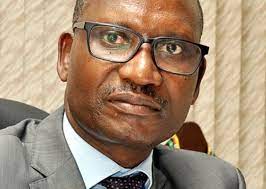TRANSPARENCY: CoST Uganda Commissions 2nd Infrastructure Transparency Index
BY OUR REPORTER
KAMPALA, UGANDA|SHIFTMEDIA| This is the time when the debate is high regarding apportioning of funds for the 2020/21 financial year, but amidst this debate, the COVID-19 lockdown has hampered contributions from especially civil society to deliberate their views with ease.
The budgeting process is one of the governance actions in Uganda that demonstrates Constitutional provisions of ‘Power belongs to the people’. While the country registers a 78 percent Youth population, the challenge of the limited capacity of the youth to research, analyze Development policies, and engage particularly in National Budget discussion still remains.
But all is not lost as the Youth Equality Center (YEC) has in a bid to have the youth In Uganda take center stage in the budget discussion held Webinar meetings to share insights.
YEC teamed up with Public Health Ambassadors Uganda to enable the Ugandan youth to participate in the ongoing Budget Advocacy processes.
The Webinar meeting was also called to generate views on Alternative Models of Financing the Health Sector in Uganda towards Universal Health Coverage – UHC.
Kaviri Ali Harrison, the YEC Team Leader said: “Considering that COVID19 has disrupted every aspect of our lives including our active and physical participation in the ongoing Budget Advocacy processes in the country, we teamed up with Public Health Ambassadors Uganda to hold a virtual Youth Health financing dialogue to engage Youth stakeholders especially on Alternative models of Health financing with special focus on sexual Reproductive Health and Universal Health Coverage.”
The virtual meeting held on Monday, May 25, 2020, was moderated by M/s Nyakato Doreen YEC Online Community Facilitator, while the key speakers include Mr. Julius Mukunda, Executive Director Civil Social Budget Advocacy Group – CSBAG, Dr. Nsubuga Nambatya the Deputy Country Director at the Living Goods.
Others who participated were: Ms. Diana Tibesigwa policy and Campaigns officer at World Vision International Uganda, Mr. Tonny Muzira Chair Youth for Universal Health Coverage movement in Africa and Ms. Olgah Daphynne Namukuza, Programmes Manager, Uganda Network of Young People Living with HIV/AIDs – UNYPA.

Youth Equality Centre (YEC) is a Youth-led community enhancement organization dedicated to elevating young people’s voices in governance and Development processes by extending leadership, SRHR, and livelihood strategies to the youth through capacity building, advocacy, and, community mobilization.
YEC was formed as a community-based organization in 2013 and incorporated as a Non-Government Organization in 2014 with the aim of empowering adolescents, women, and youth through increased access to relevant information and capacity building services.
Public Health Ambassadors Uganda (PHAU) is a not for profit youth-led and serving organization working on issues of sexual and reproductive health and HIV/AIDS prevention awareness through youth empowerment programmes, health education, social entrepreneurship, and ICT for health.
PHAU was started in 2011 as a club for Music, Dance, and Drama at Clarke International University (CIU) and it’s now a full registered organization with the NGO Board of Uganda.
Kaviri said the National pre-budget engagements are envisaged to provide a platform where young people can analyze and draw important views on the 2020/21 National Budget. “This will help build a case with several stakeholders on opportunities for youth as presented in the current budget and priority investment areas for the subsequent budgeting process,” he said.
He said this is a deliberate move towards strengthening meaningful youth participation in governance and development processes through streamlining youth engagements in civic matters for them to appreciate their important role as active agents within governance spaces and in this case the budget process.
2020/21 Budget Framework Paper
According to the 2020/21, Budget Framework Paper approved by the parliament of Uganda in January, the total proposed budget for the financial year 2020/21 is over UShs 40 trillion and this puts emphasis on harnessing certain key growth sectors of agriculture, private sector, as well as strengthening of the public sector among.
Julius Mukunda, Executive Director Civil Social Budget Advocacy Group – CSBAG, said the year 2020/21 will mark the first fiscal year for implementation of the NDP III and there has been a decline from the 40.5 trillion shillings in FY 2019/20 to 39.6 trillion for FY 2020/21.
“It should be noted that of the 39.6 trillion, only UShs 21,545 billion in FY 2020/21 will be from domestic resources. It’s of great importance, therefore, to note that Objective no. 4 of the NDP places emphasis on the role of the health sector in contributing towards increasing productivity, inclusiveness, and wellbeing of the population for wealth creation,” he said.
The sector falls under the Human Capital Development Programme whose goal is to increase the productivity of the population through strategic investment in the people to enable them to work productively and competitively to achieve a rising quality of life for all, in line with the Vision 2040.
Unfortunately, the health sector has continued to witness budget cuts over the past years. In FY 2020/21, the proposed health budget is UGX 1,550.4 billion indicating a whole shortfall of UGX 1,039.075 billion from the FY 2019/20 allocation which was UGX 2589.4 billion. Now such a decline is a threat to human capital development.
Uganda is a signatory to the Abuja declaration where she pledged to allocate at least 15% of its national budget to the health sector, but the continued budget cuts for the health sector do not in any way represent that commitment. Furthermore, Uganda through President Museveni did commit in November 2019 during the ICPD 25 Nairobi summit to the following:
Demands from the youth
The youth are demanding the eliminating of all obstacles that stand in the way of Girls’ empowerment including teenage pregnancy and child marriages as well as all forms of Gender-Based Violence.
Similarly, the youth are calling for the promotion of universal access to all methods of family planning and reducing the unmet need from 28% to 10% by 2022.
They urged government to operationalize the National Sexuality Education framework that the Ministry of Education and Sports launched in 2018, to provide a formal national direction for sexuality education within Uganda’s schools while upholding positive cultural and religious values of our country.







